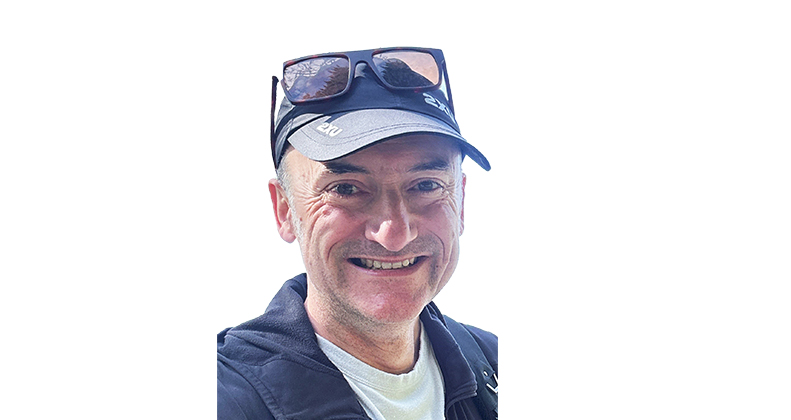
In 2018, Francesco Siccardi was appointed CEO of Medacta, taking the helm from his father and company founder, Dr. Alberto Siccardi. Mr. Siccardi has led the company through an IPO and now COVID-19. We interviewed Mr. Siccardi about market opportunities, headwinds and strategies over two interviews, one before the spread of the coronavirus and then again in April. Below are edited responses from our conversation.
What are the greatest opportunities for growth in the next two to three years? Why?
Mr. Siccardi: The orthopedic sector is – and must continue to be – an ever-changing sector, in which innovation plays a fundamental role. With an aging demographic and the desire to remain active longer, the number of orthopedic and spinal procedures will continue to grow worldwide. More patients consider orthopedic surgery in order to maintain a vibrant lifestyle. Young people tend to experience more joint problems, while revision procedures for total joints grow as a result of surgical interventions at a younger age and a longer life expectancy.
Both young and older patients lead active lifestyles and have very high expectations and functional demands. This is the reason that orthopedic companies, surgeons and healthcare systems are committed to continuously improving the standard of care and patients’ outcomes. Orthopedic companies face the challenge to offer patients, surgeons and healthcare systems highly performing products, which can respond effectively to the needs of an increasingly demanding population.
In order to effectively respond to patients’ expectations and to the healthcare system’s need for both efficiency and sustainability – that are becoming increasingly important following the COVID-19 outbreak – we are focusing on minimally invasive techniques and personalized solutions. These include pre-operative 3D-planning platforms and patient-matched technologies that can help optimize surgery and reduce unexpected events while minimizing recovery time and maximizing longevity of the implant. A complete and profound knowledge of the human body is crucial in order to develop personalized solutions: our MyBody Database consists of 90,000 CT, MRI and biomechanical models, as well as computer assisted/application-based systems in connection with surgical planning and navigation.
A strong collaboration with surgeons is another critical success factor, as from this collaboration Medacta, is able to understand the unmet clinical needs and develop solutions with an increased efficiency for the healthcare system, in particular in the field of minimally invasive techniques such as the AMIS total hip replacement or the newly launched MIS MySpine MC for pedicle screw placement.
What headwinds do you expect the market to face? Why?
Mr. Siccardi: The widespread outbreak of COVID-19 has impacted our business. Starting from March 2020 we have seen a severe reduction of elective surgeries in several countries. Elective procedures have been and will be deferred depending on the evolution of the situation. We expect that orthopedic patients will generate waiting lists in different markets and, depending on the duration of the deferral of elective surgeries, a recovery could start later in the year.
Once the situation normalizes, an increased pressure for healthcare systems will be the natural consequence of the pandemic, as there will be a growing number of procedures and limited resources which will not grow proportionally to the number of patients.
Now more than ever, surgeons and healthcare systems wish that turnover time in the operating room be optimized and the postoperative period the best possible. This is why minimally invasive procedures are becoming increasingly important as well as single-use products, designed to streamline operating room workflow, like our unique GMK Efficiency Knee Pack.
From a sustainability point of view and regardless of the COVID-19 impact, the higher costs for healthcare systems are caused by revision surgeries due to failure of previous implants. Revision surgeries have an impact both on healthcare sustainability – they are more complex and longer than primary procedures – and on society, because revision patients experience a long period of inactivity and prolonged suffering, and the results are often less favorable and lasting than primary surgeries. Healthcare systems should therefore be ready to invest more, in favor of the quality of the products and solutions they provide.
In 2018, together with Geisinger Health – one of the most innovative health systems in the U.S. – we initiated a lifetime guarantee for joint replacement. At first intended for hip replacement, we have extended this warranty program to knee replacement and revision knee surgery. This means that Medacta and Geisinger stand behind the full cost of care associated with hip and knee replacement surgeries over a patient’s lifetime. The program also covers revision surgeries performed for patients with previous knee replacements that have failed, even if the original surgeries were performed outside of the Geisinger health system or with implants from other manufacturers.
What personally excites you about the orthopedic market and the opportunities ahead for Medacta?
Mr. Siccardi: Overall, we are confident that mid- and long-term fundamentals have not changed despite the COVID-19 pandemic.
Hospitals, ASCs and providers will be even more incentivized to deliver a higher quality of care at a reduced overall cost. The ability to maintain quality outcomes while balancing improved productivity with cost-efficiencies is critical. We believe this challenge provides a unique opportunity to move forward, by creating new care delivery models for facilities, providers and patients that are built to last. We are rising to this challenge with our “MPower Sustainability Solutions.”
Moreover, we are excited to leverage our unique education platform and increase collaborations with university hospitals all over the world. We will focus on country-specific projects and trends, always faithful to our goal of improving outcomes for healthcare systems in terms of patient satisfaction, efficiency and economic savings.
“Redefining better” is our commitment for the future. We want to continue moving forward and developing innovations and surgeon education programs focused on getting patients back to their healthy and active lifestyles.
The full interview can be found at ORTHOWORLD.com.
CL
Carolyn LaWell is ORTHOWORLD's Chief Content Officer. She joined ORTHOWORLD in 2012 to oversee its editorial and industry education. She previously served in editor roles at B2B magazines and newspapers.




